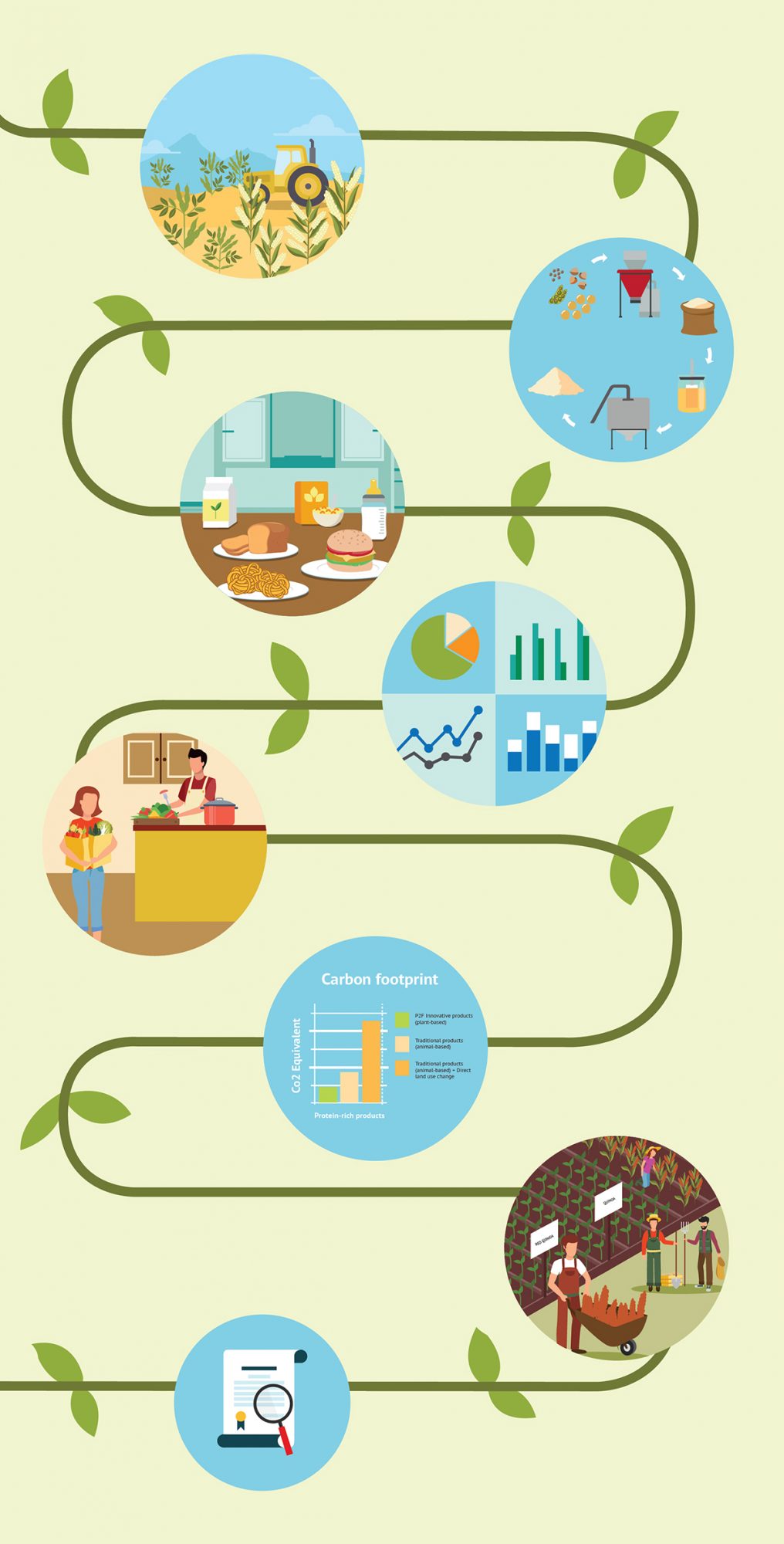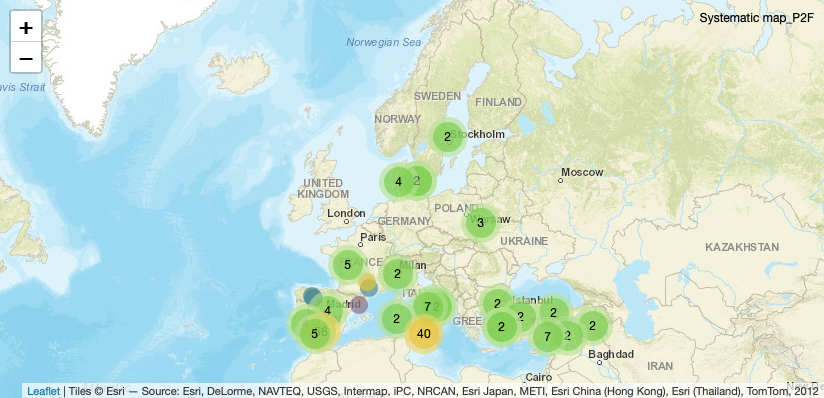Sabrina Ruzanski & Emanuele Zannini detail PROTEIN2FOOD, a project that concerns pioneering crops for future generations, most notably, accelerating protein transitions with new plant-based foods
Our planet is under pressure from a changing climate and exploitation of natural resources, with agriculture carrying a large part of the responsibility for the release of greenhouse gasses and loss of biodiversity. Additionally, the continued growth in global meat consumption is challenging the planetary boundaries even further.
Addressing these issues will require urgent changes to the food system, of which transitioning our diets towards a protein intake, mainly based on plants is one step of the way. This article introduces the outcomes of PROTEIN2FOOD, a European Commission funded research and innovation project, aimed at developing sustainable crops and foods for future generations.

From field to fork: Plant-based food
For five years, 18 partners from Europe, Peru and Uganda have worked together across the entire food value-chain in developing nutritious new plant-based foods based on a range of grain and legume crops with high protein quality and high protein content to benefit the environment and human health, while supporting agrobiodiversity and the bio-economy.
PROTEIN2FOOD has:
- Tested and optimised several resource-efficient and cost-effective plant protein crops in multiple European environments, leading to insights into the most efficient crop genotypes and the associated best agronomic management practices in the various climatic regions of Europe.
- Applied innovative processes for dry fractionation and aqueous extraction of these seeds, allowing for efficient protein enrichment and purification in new flours, concentrates, and isolates.
- Developed nutritious food prototypes with high protein content, such as meat-substitutes, dairy-substitutes, infant formula, and a range of hybrid and gluten-free bakery products.
- Analysed environmental impacts, market trends, socio-economic and policy implications and potential routes for the future market of plant-based protein foods.
- Identified key drivers and barriers to consumer acceptance of new food prototypes and understanding the preferences of tomorrows’ consumers.
Pioneering crops for the future
With more than half of European consumers reducing their meat intake and a clear trend towards consumers requesting more sustainable and plant-based products, the market is maturing for new foods based on non-traditional crops. PROTEIN2FOOD worked with the following crops of high protein-quality (quinoa, amaranth and buckwheat) and high protein-content (lupin, fava bean, chickpea, lentil, grass pea, soybean and pea). Several varieties were tested under different agronomic interventions in various climatic regions of Europe. To assist breeders and growers, information on more than 70 crop genotypes has been collated in an interactive map (Figure 2), while crop production guidelines comply with the insights into the most efficient crop genotypes and best associated agronomic management practices.
These crops can help accelerate not only the dietary protein transition, but also the transition towards a more sustainable and diversified agricultural system. They offer new market opportunities, provide benefits when introduced in crop rotations, and improve soil through the effects of nitrogen fixation and soil phosphorus mobilisation by legumes.
Our studies forecasting the adaptation of crops under climate change across the European Union in 2050 show that many of the protein crops will have optimal growing conditions due to their high tolerance to drought and salinity. This will give them an advantage over established grain crops both now and in the future, since they can be cultivated on marginal soils. Hence, there is no doubt that these protein grains and legumes have a place in the future food system.
Plant-based protein foods: More sustainable?

The food system approach taken by PROTEIN2FOOD also involved an assessment of the environmental footprint of innovative plant-based protein foods as well as an investigation into the socio-economic impacts of this transition. The PROTEIN2FOOD prototypes, although highly processed, have a much smaller carbon footprint than their animal-based counterparts. They are also more likely to have smaller environmental impacts for most other environmental parameters, such as fine particulates emissions and acidification. However, there is still a need for optimising crop yields and efficiency of protein extraction to reduce the relatively high area use and energy demand of these specific protein crops. Likewise, to avoid negative trade-offs within socioeconomic aspects, there is a need for developing a more stable market and pricing for these crops. Fortunately, the innovation towards sustainable protein foods will continue in ‘SMART-PROTEIN’, another European Commission funded project.
Europe’s protein transition: Policy recommendations and actions
To achieve the necessary environmental improvements, it will require strong political support for a fundamental shift within the agricultural sector, as well as consumer-targeted educational campaigns on exchanging animal-based foods with high processed vegetable protein replacers, as well as mildly processed legumes and pseudo-cereals.
PROTEIN2FOOD recommends:
- Targeted agricultural and food policies to support legumes and pseudo-cereals.
- Financial support for research and training into improved crop efficiencies.
- A true pricing framework for the agricultural sector.
- Consumer and farmer education.
This project has received funding from the European Union’s Horizon 2020 research and innovation programme under grant agreement No 635727.
*Please note: This is a commercial profile











